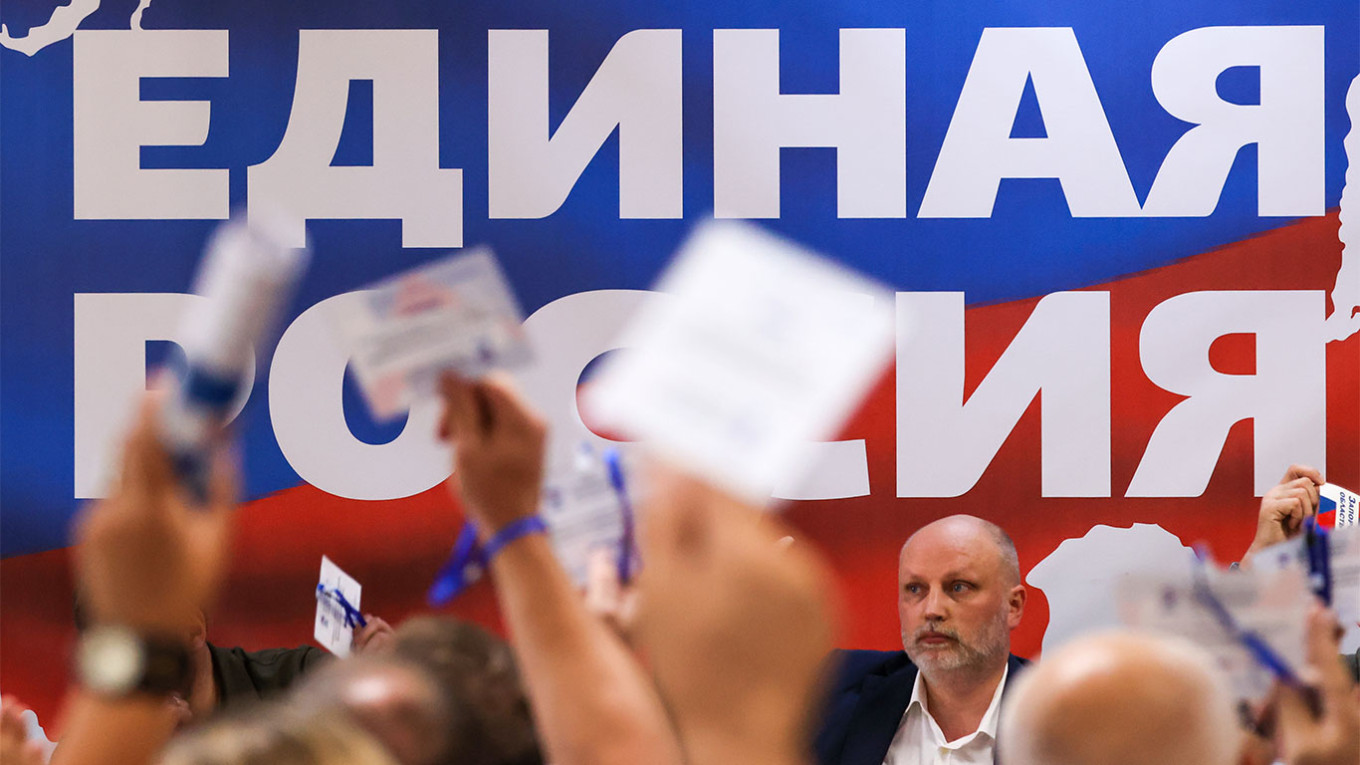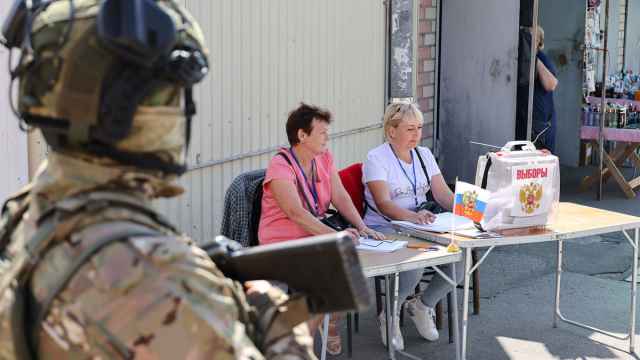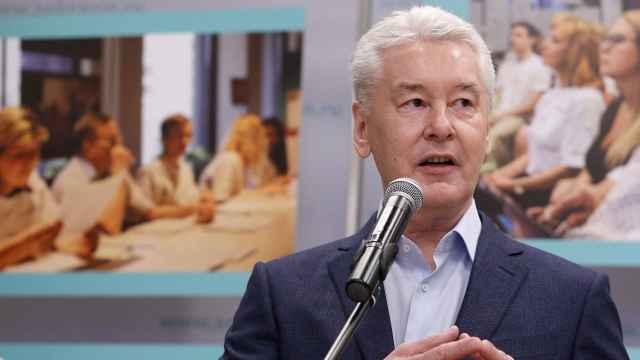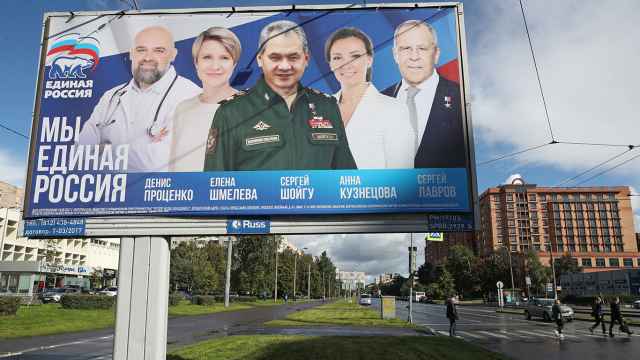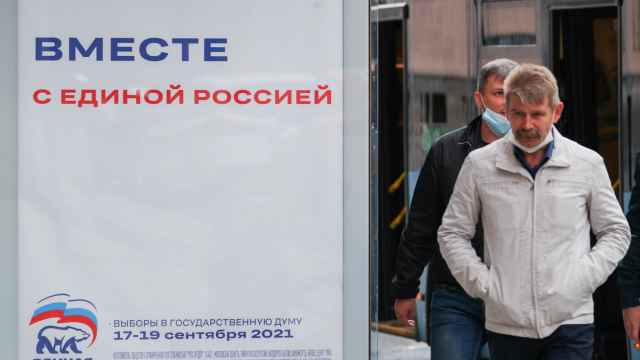Russia’s ruling, pro-Kremlin United Russia party is distancing itself from narratives related to the war in Ukraine in its campaign for the country’s regional and local elections this month.
The Kremlin appears highly concerned about the outcome of the vote despite its tightened control over the media and suppressed opposition, sources familiar with the government's election strategy told The Moscow Times.
The elections — which will take place in 49 regions, more than half of the country, as well as annexed Crimea and the four Ukrainian regions that Russia claims to have annexed — are expected to take place without the presence of independent observers or journalists at polling stations, while Kremlin-backed candidates are mostly expected to clinch easy wins.
Authorities nonetheless appear to be treating the elections as a rehearsal for next year's presidential elections, during which President Vladimir Putin is widely expected to seek a fifth term.
"The political department of the presidential administration is working non-stop to ensure that the results are as favorable to the Kremlin as possible,” a source close to the presidential administration told The Moscow Times on condition of anonymity.
“There is no overconfidence or lightheartedness. In a time of war, you have to be on guard,” the source added.
The September elections come as the country remains mired in the 19th month of its war on Ukraine — a campaign that was initially sold to the Russian public as a swift, successful “special military operation.”
Candidates from the pro-Kremlin United Russia party had at first been instructed to focus their campaign messaging on the “heroism of Russian soldiers” fighting in Ukraine, a Russian government official said on condition of anonymity.
However, the PR strategy was apparently later changed to downplay the topic of the war.
"We finally came up with the conclusion that the main emphasis should be on a reassuring topic — life is going on as it should, and the country is developing," the official told The Moscow Times.
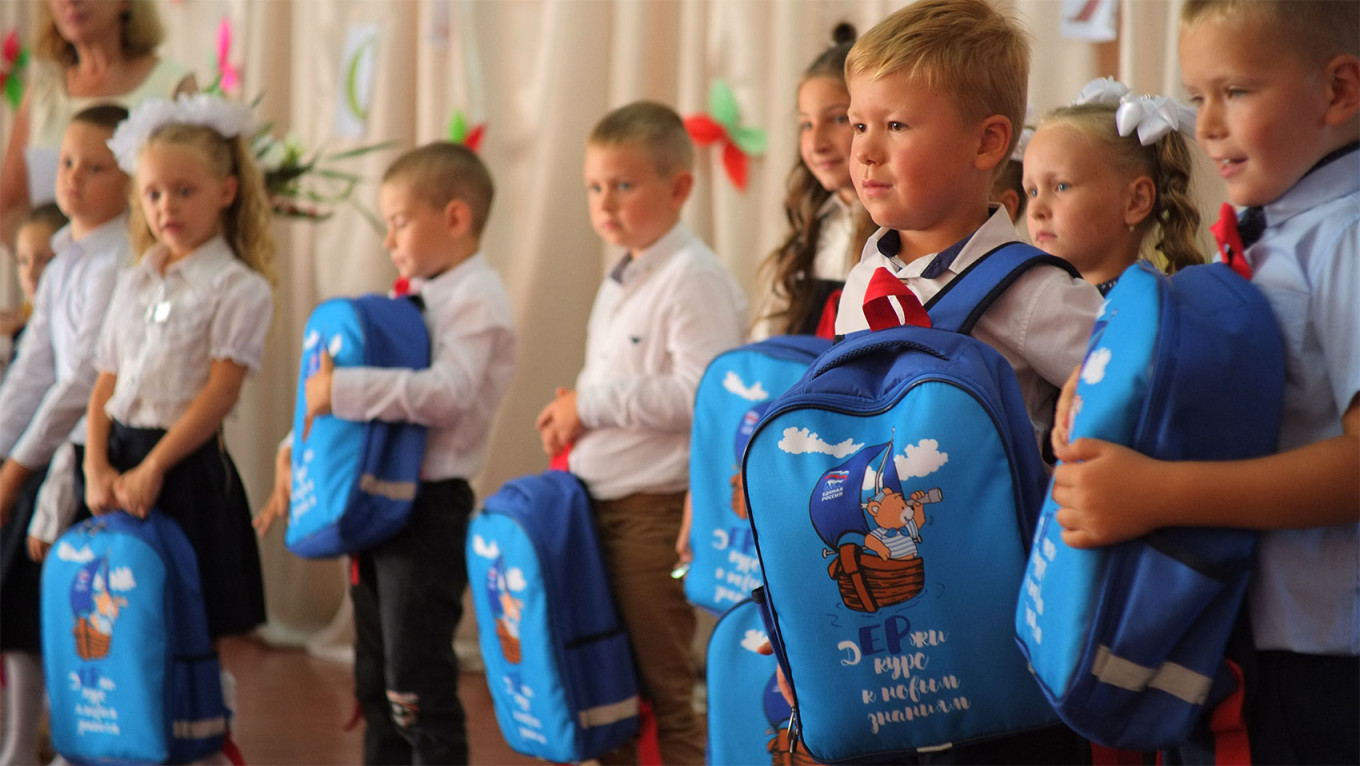
According to the official, the Kremlin and United Russia’s change in narrative was prompted by Wagner mercenary leader Yevgeny Prigozhin’s June revolt, along with criticism of the war in Ukraine, even from pro-war bloggers who were typically seen as government supporters.
“It was recommended to be mainly focused on more basic and day-to-day issues,” an official from southern Russia confirmed to The Moscow Times, adding that the war “is only one aspect” of social life.
One such example was State Duma deputy Sergei Sokol, a United Russia member who claims to have served in Ukraine alongside other Russian officials in the Kaskad volunteer battalion. Many view the battalion as a PR tool for politicians rather than a real military unit.
Despite having the Kremlin’s backing and theoretical war veteran status, Sokol, who was challenging Communist Governor Valentin Konovalov for the top post in the Siberian republic of Khakasia, failed to achieve impressive polling numbers. He withdrew from the election last week due to health issues.
Although Sokol — who was awarded the Order of Courage after returning from the front this spring — mentioned his war experience in an August interview with pro-war blogger WarGonzo, he had otherwise toned down his discussions of the war in recent weeks, said Stanislav Andreychuk, a board member at Russia’s main independent election watchdog Golos.
"Instead, discussions there revolve around teachers' salaries and other socio-economic issues,” Andreychuk told The Moscow Times.
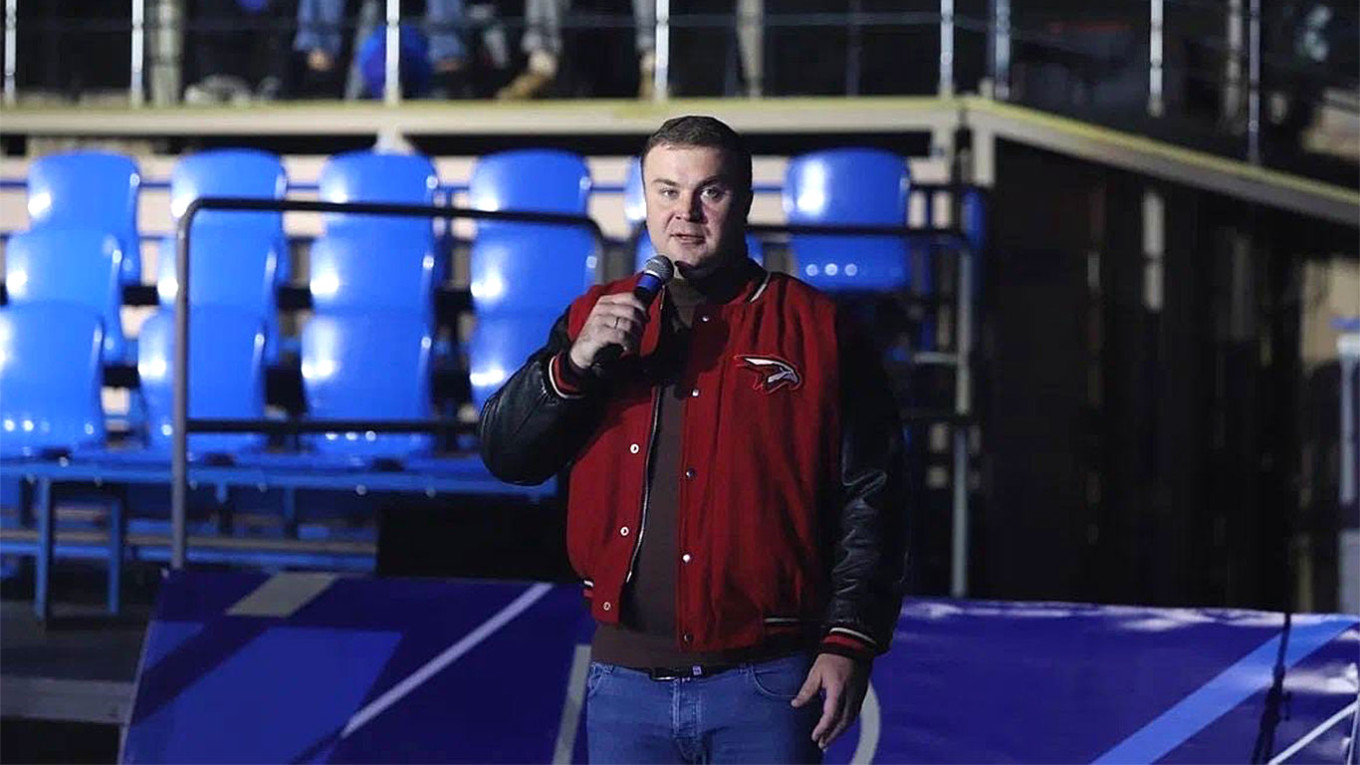
Another candidate who appears to be distancing himself from the war is Vitaly Khotsenko — the former prime minister of the Russia-occupied part of Ukraine’s Donetsk region and now the acting governor of Russia’s Omsk region — who is running for the permanent governorship from the United Russia party.
In Khotsenko’s campaign, “Ukraine is typically mentioned a couple of times a week, but in a social context — for instance, aiding the families of military personnel,” while his primary focus is on education, Andreychuk said.
“The topic of Ukraine is indeed barely discussed. There is very little of it even among those candidates who, it seems, are supposed to [play the war card],” Andreychuk added.
This sentiment was echoed by Russian political analyst Yekaterina Kurbangaleeva, who said the government's aim appeared to be reassuring the public that “nothing terrible is happening in Russia.”
Authorities “decided not to frighten Russians, but rather send them a signal to do their own business while the military will deal with the war,” Kurbangaleeva said.
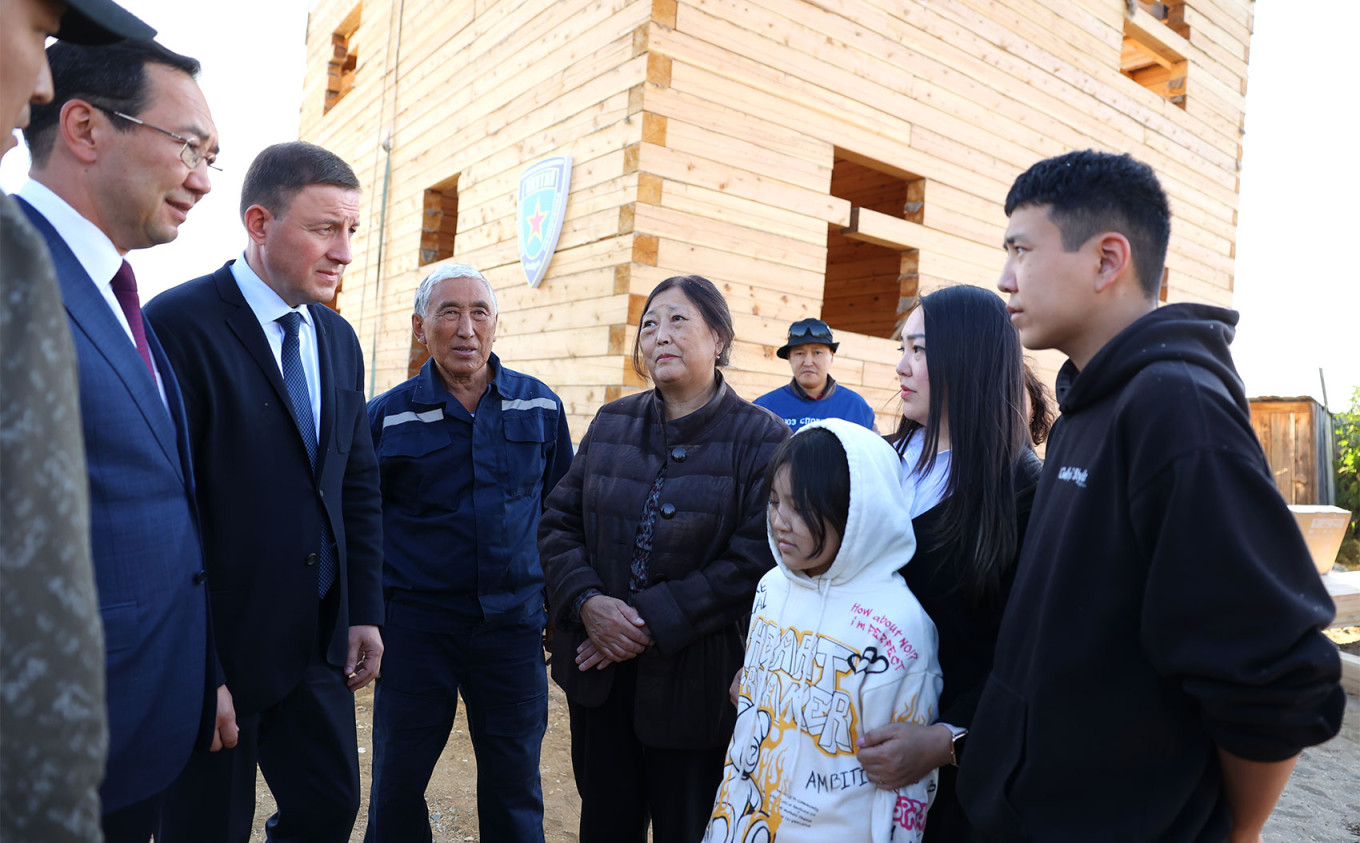
United Russia maintains the support of 37.7% of the populace, state-run pollster VTsIOM reported in August, while the Communist Party (KPRF) holds a 10.2% approval rating and the Liberal Democratic Party (LDPR)’s rating stands at 9%.
With no real opposition candidates permitted to take part in this year’s elections, jailed Kremlin critic Alexei Navalny urged his supporters to oust Kremlin-backed candidates by supporting non-United Russia candidates.
While the results of the elections are yet to be seen, experts believe the government’s strategy about the war in Ukraine might appeal to voters.
"In theory, it is possible that there are many people who do not support the war and might cast their vote against the Kremlin’s candidates, out of spite,” said Oleg Ignatov, a senior analyst at the International Crisis Group.
“But most likely, the protest vote would be minor, because there is no mass campaign in support of it — and this is a good scenario for the regime.”
A Message from The Moscow Times:
Dear readers,
We are facing unprecedented challenges. Russia's Prosecutor General's Office has designated The Moscow Times as an "undesirable" organization, criminalizing our work and putting our staff at risk of prosecution. This follows our earlier unjust labeling as a "foreign agent."
These actions are direct attempts to silence independent journalism in Russia. The authorities claim our work "discredits the decisions of the Russian leadership." We see things differently: we strive to provide accurate, unbiased reporting on Russia.
We, the journalists of The Moscow Times, refuse to be silenced. But to continue our work, we need your help.
Your support, no matter how small, makes a world of difference. If you can, please support us monthly starting from just $2. It's quick to set up, and every contribution makes a significant impact.
By supporting The Moscow Times, you're defending open, independent journalism in the face of repression. Thank you for standing with us.
Remind me later.




